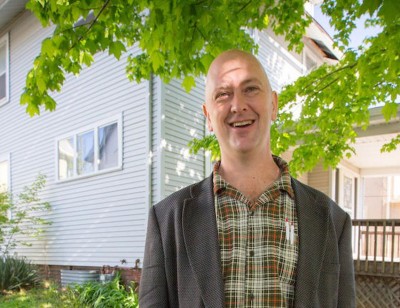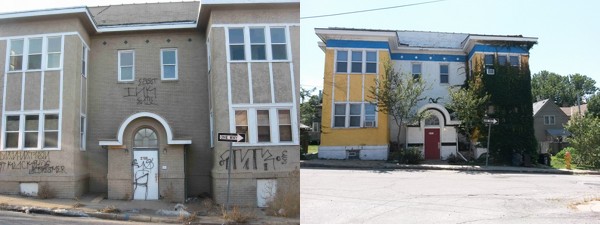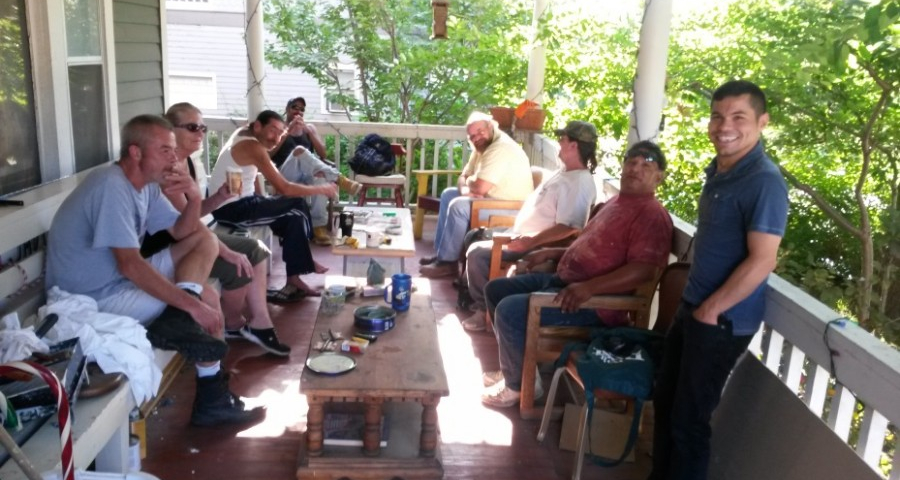Rebuilding home and work opportunities: from faith to action with Communion Properties
By Tainã Santana
Stop. Look around you. What do you see? If you look closely you might see something to improve, and hear a call. The second webinar of the series in preparation for the 30th anniversary of the Economy of Communion invites us to do just that. Andrew Gustafson,Professor of Business Ethics at Creighton University, is the owner of a business called Communion Properties, a real estate company based in Omaha, Nebraska (USA). The way he sees it, every person is called to give something back to the world. In his case, it all started while walking through the neighborhood where he lives, seeing several houses in poor condition, abandoned by their owners. There he felt a call to give them a new lease on life, restoring them, and at the same time offering new dignity to workers and tenants with few opportunities.
Andrew comes across as a practicing Baptist Christian, the son of farmers, with a doctorate in philosophy paid for by his work, a professor, and an entrepreneur.An interesting combination in itself,  but in his business faith and life, theory and practice (including business) really do meet.
but in his business faith and life, theory and practice (including business) really do meet.
Communion Properties invests money and energy in dilapidated buildings and rehabilitates what others reject; it gives confidence to employees, taking them from the margins of society, without being scandalized by the stains of their past; and it gives confidence even to tenants very few homeowners would trust. Andrew tries to base his business decisions on reasons beyond just profit. "Where people see hopelessness" he says, "we see a hope, both in homes and in people [...] and we give them a second chance.”
Many of the homes the company buys are "condemned" by the city government (which prohibits their use until they are fixed up). Others no one wants, except for the homeless people who squat in them. Today, Communion Properties manages 35 buildings, totaling more than 80 housing units and more than 120 tenants. In addition, it is responsible for 116 restrooms in the downtown area. "One of the most valuable aspects of my job,” Andrew is convinced of this; “is the relationships with my co-workers and tenants." So the daily meeting to assign tasks to his workers is done while sitting on the porch of his home, each with his good cup of tea. And he's never wanted to delegate the relationship with tenants who don't pay, even the most problematic ones, to others, thinking that that's where the beauty of his job as an entrepreneur lies. "That way there's no shortage of wounds," Andrew says, "but there are blessings, too.

Another spark of hope was shown during the webinar: Project Lia, a social enterprise in Indianapolis. It was presented by Elizabeth Wallin, founder and executive director of the project, which, just like Communion Properties, gives a second chance to people who would otherwise remain socially excluded: the company reuses discarded materials to produce furniture and home accessories, while providing job opportunities and training to formerly incarcerated women who would have very little chance of re-entering the job market. For Elizabeth, businesses generally don't come from a quest for profit, but rather as a way of living in community.
Courage! Communion Properties, Project Lia, and so many others are taking on their shoulders society's problems to try to renew it in their own little corner of the world. And you, what are you waiting for?
Watch Andrew and Elizabeth' webinar again!








